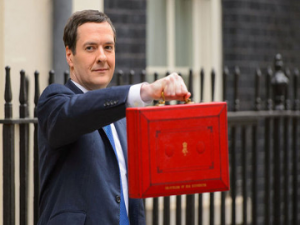
George Osborne announced in this year’s Summer Budget that corporation tax for businesses will be cut from 20% to 18% by 2020, with an interim cut of 1% in 2017.
Past reductions have been beneficial because it has created jobs and increased investment, as Osborne mentioned, despite being the lowest rate of corporate tax in the G20, according to The Independent. “Now at 20% for large and small businesses alike we have the joint lowest rate of corporation tax in the G20 and so there are now those who say we don’t need to do more,” Osborne said.
The reduction is expected to cost £2.47 billion by 2020, but Osborne highlights that these cuts put across a message to other countries, announcing that Britain is open for business, as quoted in The Independent. Alongside this, in an attempt to support smaller businesses, the Chancellor will raise the Employment Allowance by £1,000 by April 2016.
British private equity firms will also be expected to pay higher tax bills as the Treasury now apply the full rate of capital gains to deal profits, according to The Financial Times. This would be done so by preventing managers to use loopholes in the system in order to pay less.
By removing the base cost shift, it modernises and tightens the tax system, especially after April saw a closing of a loophole that meant that private equity firms would treat management fees as capital gains, but they are now taxed as income.
The FT reports that in future, the government may implement international guidelines so that tax relief can be revised for interest payments on corporate debt.







